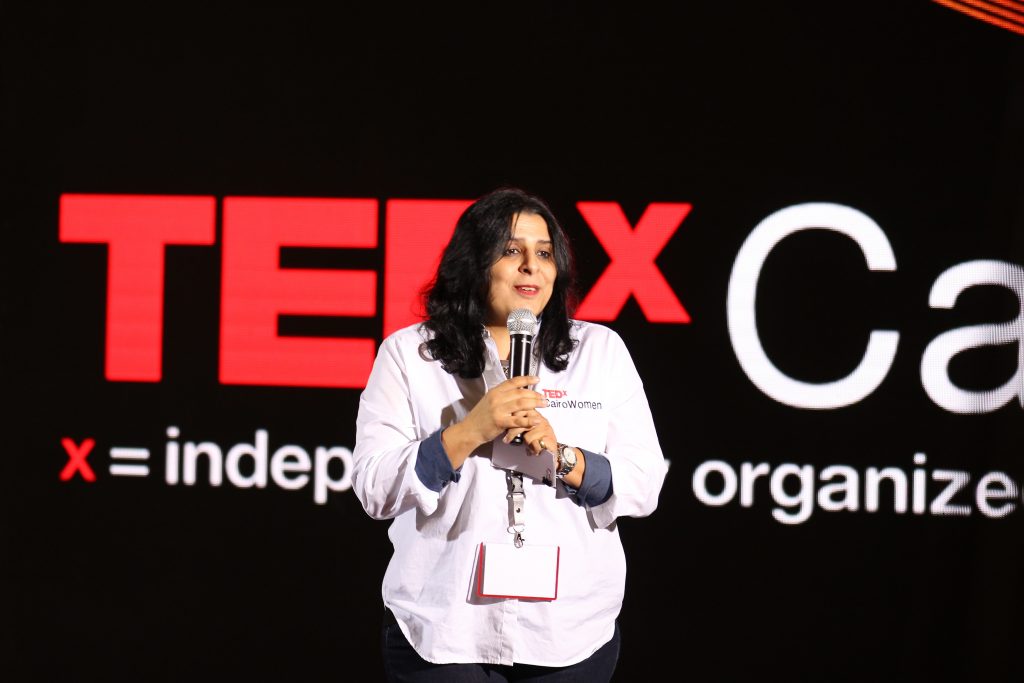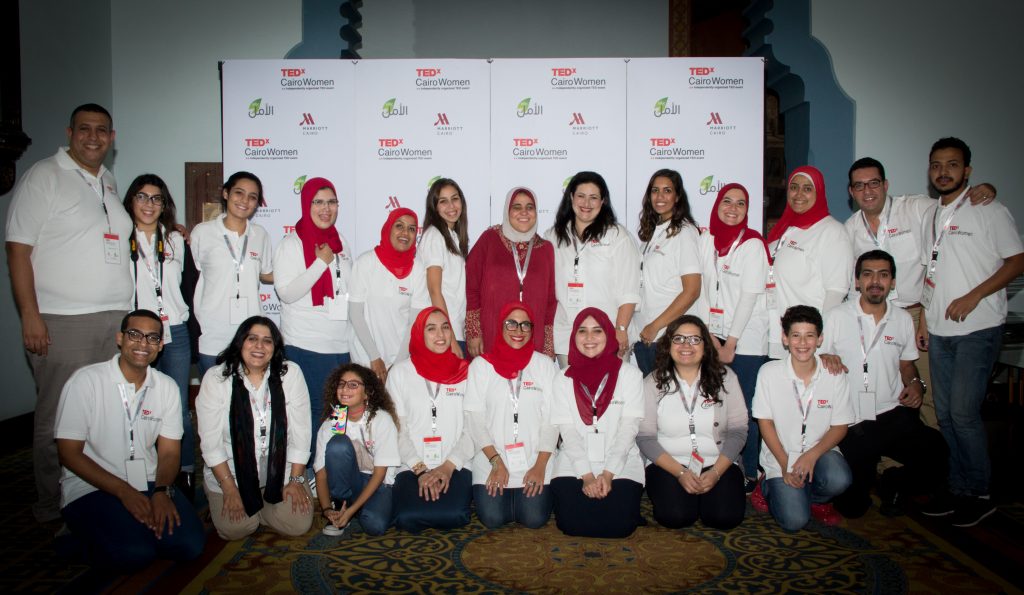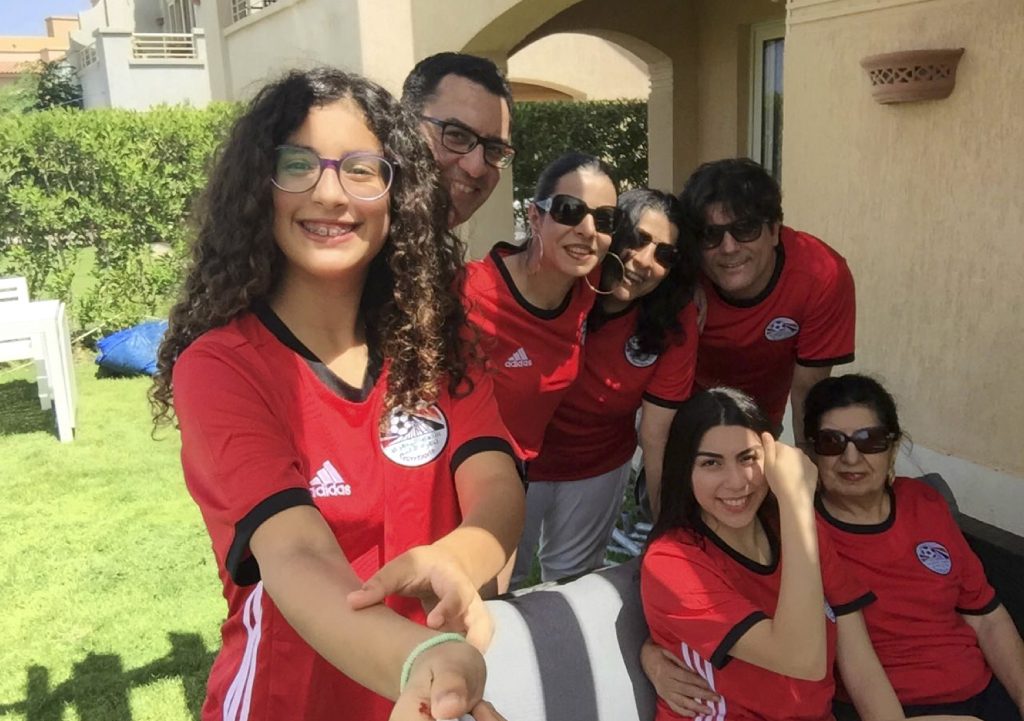From the time she was a young child, Dr. Manal Kelig and her sister grew up in a family that encouraged education and empowered them to understand and live beyond the confines of defined gender roles. Growing up in Egypt, these core values helped shape Kelig’s personal and professional choices as she pursued a series of educational degrees; established two tour companies; co-founded Hope Foundation, which addresses grassroots-related development and crisis situations; and founded TEDxCairoWomen to amplify and empower Egyptian women.
Kelig is also executive director of the Middle East Near Africa (MENA) region for the Adventure Travel Trade Association (ATTA), inspiring the entire ATTA team every single day with her impressive background and current multi-faceted projects. She is a busy woman, but Kelig graciously made time for us so we could share more about her work with you.

ATTA: Your early academic work focused on women’s issues in the Middle East. What perception does the international community have about Middle Eastern women, and how has your current work addressed these misconceptions and misunderstandings?
Kelig: The shocking part was how travelers perceived gender roles in the Middle East. But what I found shocking was that the misconceptions were not only between the East and the West; it was also between the East and the East. When I went with tourists into the deepest pockets of Egypt, I also realized there were misconceptions and stereotypes on the role of women that I had, since I was from the city. I thought it was extremely important to understand better about the reality of gender roles in our country and in the region, and then try to take this fresh image with its pros and cons and make sure visitors understand the reality of the situation, how common our problems are with those of women worldwide, and how religion does not actually control this image or these roles. It mainly stems from culture and tradition.
The first step was to go and get educated, find the main story and share it with others, and then after awhile I asked myself, what am I doing about it? That’s when I started to choose certain initiatives, campaigns, and issues to work on so I could become part of the solution. So, this came as part of the job of working in tourism, but the question still stood: What do we do about it? Are we just telling the story, or are we taking action? And that’s what got me involved in these initiatives like malnutrition in women, girls leaving school, and early marriage.
ATTA: With all of these issues in society, how do you decide which issues to focus on?
Kelig: My passion for education made it clear the route of all issues we’re facing is lack of good education. Education is the way to independence. If you want to take control of your life, you have to have the skills, a way to shape your life, and the tools you need to make a better life. Without education, a lot of the work will be useless. Realizing that so many things are intertwined, I saw crisis work and development could not be separated.
ATTA: You have worked on a number of women-related initiatives including mentoring programs, entrepreneur-related projects, crisis relief, and projects focused on supporting education and local businesses. What changes have you seen with upward mobility of women and women’s empowerment over the years working in these areas?
Kelig: I continuously see interest from women to grab opportunities — to look for chances and ways to improve their lives. And even though people assumed that, due to the Arab Spring, we would lose a lot of our wins or fall backward into these social and economic traps, I’ve seen the opposite. I’ve seen the younger generation be more determined that they find a place for themselves. Women are standing up for their education, claiming all possible opportunities around them, and that’s a big achievement.
We’re also seeing this strength in the refugees coming into Egypt from Syria. The women are fighting for survival. I see the women from Egypt and the women from Syria coming together, looking at each other’s situations and exchanging stories about these experiences, and it gives all these women a boost to continue fighting so they will not be defeated by the political and economic situations. Some of these women’s stories and the hardships they’ve been through is heartbreaking but extremely powerful, yet they’re very modest. When they share their stories, they’re not showing off. They’re just sharing what you asked them to share. It is very humbling.

ATTA: What was the process like to develop TEDxCairoWomen?
Kelig: TEDxCairoWomen is one of those things that has come into my life by pure coincidence. In 2013, I saw an announcement asking people to register for a TEDx event, and I started thinking maybe this is a new adventure that is definitely out of my comfort zone that I need to look at. At that time, the country was very polarized and it was painful. I thought, if this event takes place — bringing Egyptian women with different social and economic backgrounds and political views together in one place to discuss life and share our stories — it could be powerful. We had 100 women in the theater, listening to stories of women from different parts of Egypt exchange stories, and it was life changing for me. It touched something on the local level that tourism did not for me.
Since 2013, we have done four rounds of TEDxCairoWomen. The last event was November 2017. The next one will be December 2018. It has not been easy because the TEDx format requires that you raise money to hold the event, which has been one of the most challenging aspects. Finding the speakers and doing the tech side has been a piece of cake compared to raising the money. There are women who come a long distance to go to this event once a year, and it makes a big difference in our lives.
ATTA: What has been the most challenging aspect of working as a woman in the tourism industry in the Middle East?
Kelig: Because I wear so many hats, I think each job is different. When I was younger, working in the field of guiding and traveling to the conservative parts of Egypt, having people take me seriously was a big problem for a long time. That was across different communities in the south and the north. And in the south, getting closer to women in the small villages and having them feel comfortable enough to let me into their lives took awhile.
Initially the stereotyping by some of our local communities of seeing a woman traveling and doing this job — my age and experience and how to handle this — was an issue, but later on it was not about gender issues anymore. It was about battling with people who were old school who did not want to change their tourism beliefs and means of operating and grasping the new ideas that my partners and I were proposing for alternative tourism. It changed from a battle of gender in some areas into how changemakers are perceived and met by traditional communities.
I think sometimes it’s in the mind. When I started, I was consumed by this thing about gender roles and I kept pushing myself to see around it, but as I got out of that and started looking at things in a more holistic way, the kind of obstacles I met were different. It’s always about the perspective we put ourselves in. If you move yourself around, the kinds of obstacles, issues, and bonuses will also change.

ATTA: Of all of your many achievements and initiatives you’ve worked with and on behalf of women over the course of your career, what are you proudest of?
Kelig: When my girls — 12 and 17 years old — talk about my work, I think this makes every single thing worthwhile. As a working mom — juggling a lot of jobs by choice, missing a lot of sleep, traveling a lot, and having the support of my family — realizing that my girls love the idea that I’m not a traditional mother and the fact they respect that and are proud of that makes every single thing worthwhile.
This article is part of an Adventure Travel Trade Association (ATTA) initiative addressing important topics identified as critical to the protection and continued advancement of the adventure travel industry. Each initiative — eliminating plastics, women in leadership, climate action, and young leaders — has a dedicated team focused on building awareness of, advancing educational opportunities in, and creating a lasting impact on each of these areas within the adventure travel industry. We invite you to visit the ATTA’s initiatives page where you can access reports, read the latest news, participate in active projects, and join conversations within the membership community.
